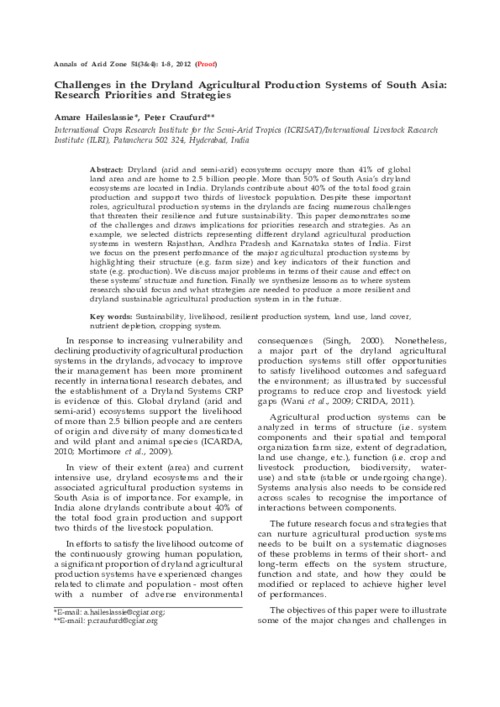Challenges in the Dryland Agricultural Production Systems of South Asia: Research Priorities and Strategies
Dryland (arid and semi-arid) ecosystems occupy more than 41% of global land area and are home to 2.5 billion people. More than 50% of South Asia’s dryland ecosystems are located in India. Drylands contribute about 40% of the total food grain production and support two thirds of livestock population. Despite these important roles, agricultural production systems in the drylands are facing numerous challenges that threaten their resilience and future sustainability. This paper demonstrates some of the challenges and draws implications for priorities research and strategies.



